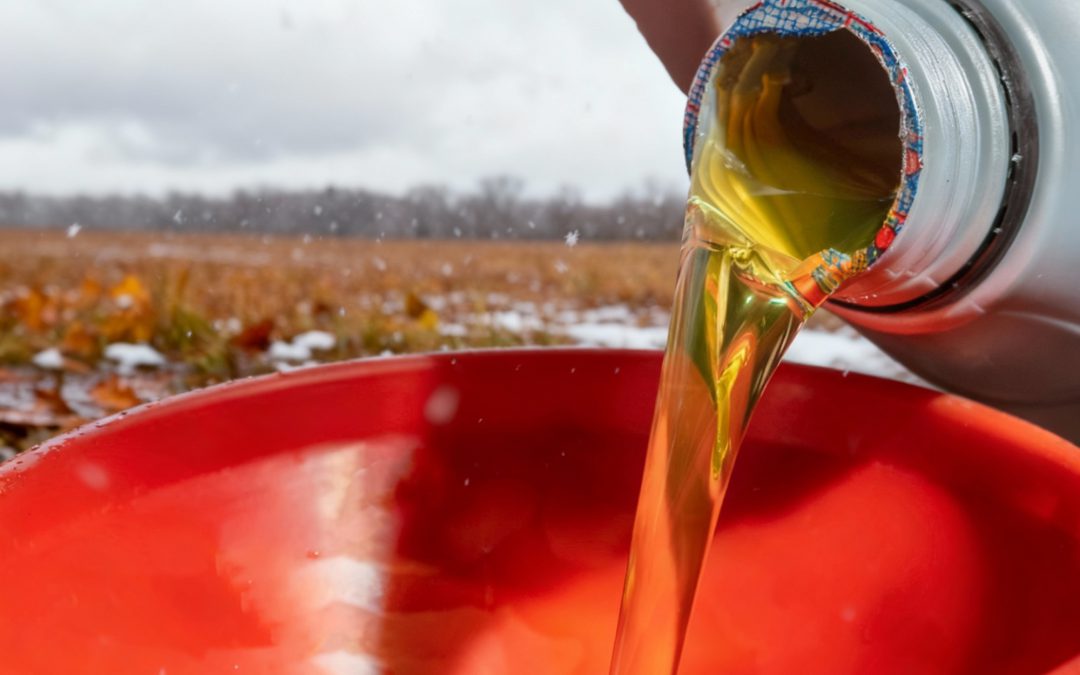How to Choose the Right Lubricants and Oils for Agricultural Machinery in Winter | GĄSKA
Winter is a period that truly puts agricultural machinery to the test. Low temperatures change the properties of oils and greases — they thicken, lose fluidity, and this leads to difficult start-ups, accelerated bearing wear, and hydraulic system failures. Properly selected winter lubricants and oils are not a luxury — they are a necessity that reduces the risk of costly downtime. In this article, GĄSKA presents a practical guide: which products to choose, what to look for, and how to prepare your equipment for low temperatures.
Understanding Lubricants and Oils in the Context of Low Temperatures — Why It Matters
Oil and grease are not just “chains” for moving parts — they are thin protective layers without which metal contacts metal. In winter, the key problems are:
- Change in viscosity (thickening) — oil becomes denser, flows worse through filters and pipes, makes starting difficult, and increases friction.
- Weaker oil film formation — at low temperatures, the protective film may not form correctly, which accelerates wear.
- Difficult flow in hydraulic and transmission systems — delayed response, vibrations, risk of damage.
- Risk of crystallization or freezing of additives — especially in substances contaminated with water.
Ignoring the winter specifics leads to shorter bearing life, serious hydraulic pump damage, higher repair costs, and downtime in farm operations.
Key Benefits of Using the Right Winter Oils and Lubricants — What You Gain with GĄSKA
1. Reliability and Faster Start-Up
A properly selected engine oil with the right SAE grade and viscosity ensures smoother start-ups in low temperatures. Less pressure on the starter and battery means fewer failures and lower service costs.
How GĄSKA helps: the range includes oils with various viscosity grades and additives that improve fluidity in low temperatures, plus selection advice for specific engine models.
2. Protection of Hydraulic and Transmission Systems
Hydraulic and transmission oils designed for cold conditions maintain stable flow and control system responsiveness. This means fewer delays and less wear of moving components.
How GĄSKA helps: expert advice in selecting hydraulic oils with the proper viscosity index and low pour point, preventing pump damage.
3. Extended Bearing and Moving Parts Life
Low-temperature greases (e.g. lithium greases with EP additives or synthetic greases) retain plasticity and viscosity, forming a protective film even in frost.
How GĄSKA helps: compatibility testing of greases with operating temperature and recommendations of greases with appropriate NLGI grade and anti-wear additives.
4. Lower Operating Costs and Reduced Downtime
Investing in the right winter oil pays off through fewer breakdowns, less frequent part replacements, and shorter repair times.
How GĄSKA helps: products carefully selected for their price/longevity ratio, with service support and detailed maintenance instructions.
5. Work Safety
Properly functioning machines mean safer working conditions for operators — no unexpected failures and stable braking/hydraulic systems.
How GĄSKA helps: training and manuals for operators on lubrication and oil condition monitoring.
How to Recognize the Quality of Winter Oils and Greases and Where to Find Them
What to Check When Choosing Oil and Grease
- Manufacturer’s specifications: always check the machine manufacturer’s recommendations for viscosity grade (e.g. SAE), API/ACEA or ISO specifications.
- Viscosity at low temperatures: key parameters include pour point and viscosity index. For winter, choose oils with a lower pour point and a wide viscosity index (e.g. 10W-40 instead of 30W).
- Anti-wear and anti-corrosion additives: EP (extreme pressure) packages, corrosion inhibitors, detergents, and dispersants.
- Water and contamination content: moisture lowers oil quality; check cleanliness and filters.
- Base oil type: synthetic oils usually perform better under extreme temperatures (better fluidity, stability).
What to Check When Choosing Grease
- NLGI grade: match grease consistency to the application (bearings, joints, guides).
- Operating temperature range: ensure the grease remains plastic at expected frost levels.
- Washout resistance: important for exposure to moisture or water.
- Compatibility with seals and materials: some greases may soften seals.
Why Choose a Trusted Supplier Like GĄSKA
- Guarantee of originality and product quality control.
- Technical advice tailored to specific machine models and climate conditions.
- After-sales support and winter service plan creation.
- Fast delivery and seasonal product availability.
Practical Tips — Step by Step Before and During Winter
- Pre-winter inspection: replace engine and hydraulic oil, check filters, levels, and system tightness.
- Viscosity selection: use oils recommended by the manufacturer with lower “W” numbers (e.g. 5W-30/10W-40) in cold regions.
- Greases for bearings: use lithium or synthetic low-temperature greases; lubricate before long frost operation.
- Storage: keep oils and greases above zero temperature (if possible) or insulated; pour into machines only when moderately warm to avoid thick fluid introduction.
- Heating systems: consider engine/oil heaters (e.g. heating mats) for faster startup.
- Monitoring: regular viscosity and oil condition checks (spectrometric or simple tests) help detect wear or contamination.
- Documentation: keep records of oil changes and types for each machine unit.
Summary — A Smart Decision for the Future of Your Farm
Choosing the right lubricants and oils for agricultural machinery in winter is an investment that quickly pays off: fewer breakdowns, lower repair costs, and greater work efficiency. GĄSKA offers expert advice, tested products, and technical support — everything you need to keep your machines running smoothly even in the harshest conditions.
Don’t risk costly downtime — choose proven winter lubricants and oils.
Contact a GĄSKA technical advisor or check our winter product range today. Need a quick recommendation for a specific machine model? Write or call us — we’ll gladly help you find the perfect solution.

Recent Comments